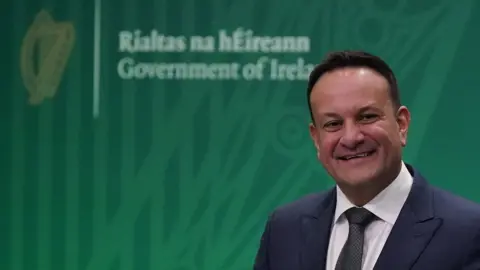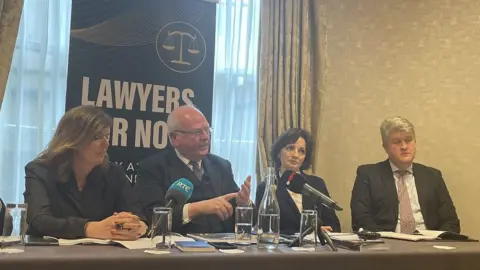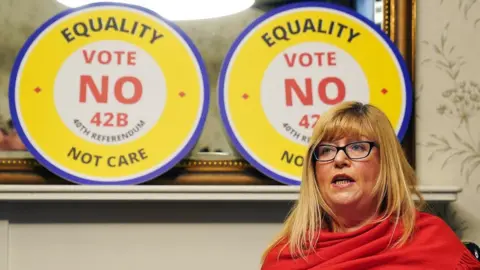People in the Republic of Ireland will vote on Friday 8 March 2024 on changes to the Irish constitution regarding (1) the make up of a family and (2) the role of women.
The referenda takes place on Friday – International Women’s Day.
The government’s ill-conceived ludicrous determination was to change the so-called ‘women in the home clause’ of the constitution.
However, the wording on the ballot papers of the two referendums raised very serious concerns over care, disability and taxation, which was obvious to all bar the government, via social media. The government choose to ignore the obvious & tried to bully their way through obviously thinking that the majority sovereign would follow & agree their warped ideology, as they have demonstrated in other instances.
A lot has changed since the constitution was written in 1937.
Let’s take a look at what was proposed.
Question 1 – Bid to update the definition of ‘family’
The first proposed change is known as the Family Amendment.
The Irish Constitution currently offers legal protections to the family unit clearly binding the concept of family to the institution of marriage, a well tried & tested legal position requiring clear crucial assessment & examination before making a change. In not doing this the government were extremely flippant & dangerously lacking in jurisprudence.
The question basically asks whether the constitutional definition of family should be expanded – in practice meaning that family could also include, for instance, unmarried couples and single parent families. The majority traditionalist sovereign were more astute than the overpaid underworked politicians.
The question is a Yes or No vote on whether the State should recognise family units “founded on marriage or on other durable relationships”.

Taoiseach Leo Varadkar is campaigning for a double yes vote
What do supporters of the change say?
Taoiseach (Irish prime minister) Leo Varadkar said there were about 1m people in families which are not based on marriage, such as those led by unmarried but co-habiting parents, single parents or grandparents.
Mr Varadkar added it was a necessary change to the constitution “because it puts an obligation on the State to strive to support” family care provided by everyone, not just married parents.
Speaking this week while canvassing for a Yes vote, the taoiseach Leo Varadkar said it was about recognising that all families were equal. Clearly Mr Varadkar was not speaking from a position of informed confirmed knowledge & relied on his own private desires & perceived perception of power.
What do opponents say?
Critics have argued that the term “durable relationship” is very unclear and could lead to unintended consequences.
Legal experts have warned that the failure to define this new term in the constitution may have implications for future family courts case, inheritance disputes, tax law and immigration cases.
Among them is Senator Michael McDowell, a barrister and law lecturer who has served terms as Tánaiste (deputy prime minister), Justice mMinister and Attorney General.

Barrister Brenda Power, Senator Michael McDowell, barrister Maria Steen, and barrister and TD Michael McNamara are advocating for two No votes.
“Everyone knows whether or not they are married,” he wrote in a recent opinion piece.
“Nobody knows who is or who is not in a ‘durable relationship’ unless a court decides in a disputed case that it is ‘durable’.
“Nobody knows how and when a “durable relationship” between two adults ends in the eyes of the law.”
He has described the proposals as rushed, reckless and said many voters were telling the media “that they simply do not know what the referendums are all about“.
Question 2 – Women’s roles and family carers
The second proposed change is known the Care Amendment.
It stemmed from a desire to update parts of the Irish Constitution which refer to the role of women within the family home.
The constitution currently says that mothers should not have to go out into the workplace to the neglect of their “duties in the home”.
The existing document also acknowledges that women’s “life within the home” is a source of support to the State which is necessary for the “common good”.
Voters will be asked whether those two articles, which some have argued are sexist and outdated & should be deleted.
A Yes vote would replace the two articles with new wording that recognises the value of the provision of care in the home “by members of a family”.
The replacement text would also add that the state “shall strive to support” the provision of that family-based care.
What do supporters of the care change say?

Yes campaigners have argued that legal language about a woman’s “life within the home” or a mother’s “duties within the home” are antiquated and have no place in modern Irish society.
“It was at the heart of cruel, discriminatory policies, such as the marriage bar, which forced women out of their careers once they got married,” said Orla O’Connor, director of the National Women’s Council.
“They had to curtail their dreams and ambitions and many are still facing inadequate pensions and income in older age because of it.”
Minister for Equality Roderic O’Gorman said during the announcement of the referendum: “A woman’s place is wherever she wants it to be, whether that is in the workforce, in education, or in the home.” The minister failed to elaborate on how he reached clarity on his announcement.
What do opponents say?
But the wording of the proposed change has angered disability activists who fear it would enshrine in the constitution the idea that caring is mainly the responsibility of family members.
They are rightly concerned about the phrasing that the state “shall strive to support” family members who provide care, insisting that the onus should instead be firmly on the State to look after all its citizens equally. There are already many cases where support by government is severely lacking. Most certainly looked like government wanted to copper-fasten an opt-out for the future.
“Nothing in the wording gives me confidence that this is about protecting the rights of disabled people and older people,” said No campaigner Ann Marie Flanagan.
“It is nothing to do with care, and it is nothing to do with women’s rights.”

Ann Marie Flanagan said the referendum was about protecting the State against its obligations to disabled people.
Instead she believes the proposal is a clear attempt by the State to “reduce its obligation to funding particular services”, as has already been done.
Ms Flanagan, who has been disabled since birth, is fiercely protective of her right to lead a full, independent life without having to rely on help from her family.
“I use a motorised wheelchair, I’m a personal assistant service user, so I have first-hand experience of what it’s like to need support,” she explained.
“I am married to my husband and we have an equal relationship, and we didn’t organise our relationship on the basis that he would become my ‘carer’.”
As a “direct response” to the referendum proposal, she co-founded a campaign group called Equality Not Care which is calling for a No vote on Friday.
When will we know the referendum result?
Counting is set to begin at 09:00 on Saturday 9 March at various count centres.
The referendum returning officer will receive all the individual constituency results and declare the overall national results in Dublin.
A result is expected at about lunchtime Saturday 9 March 2024.
(Researching outcomes. Will be published here…
